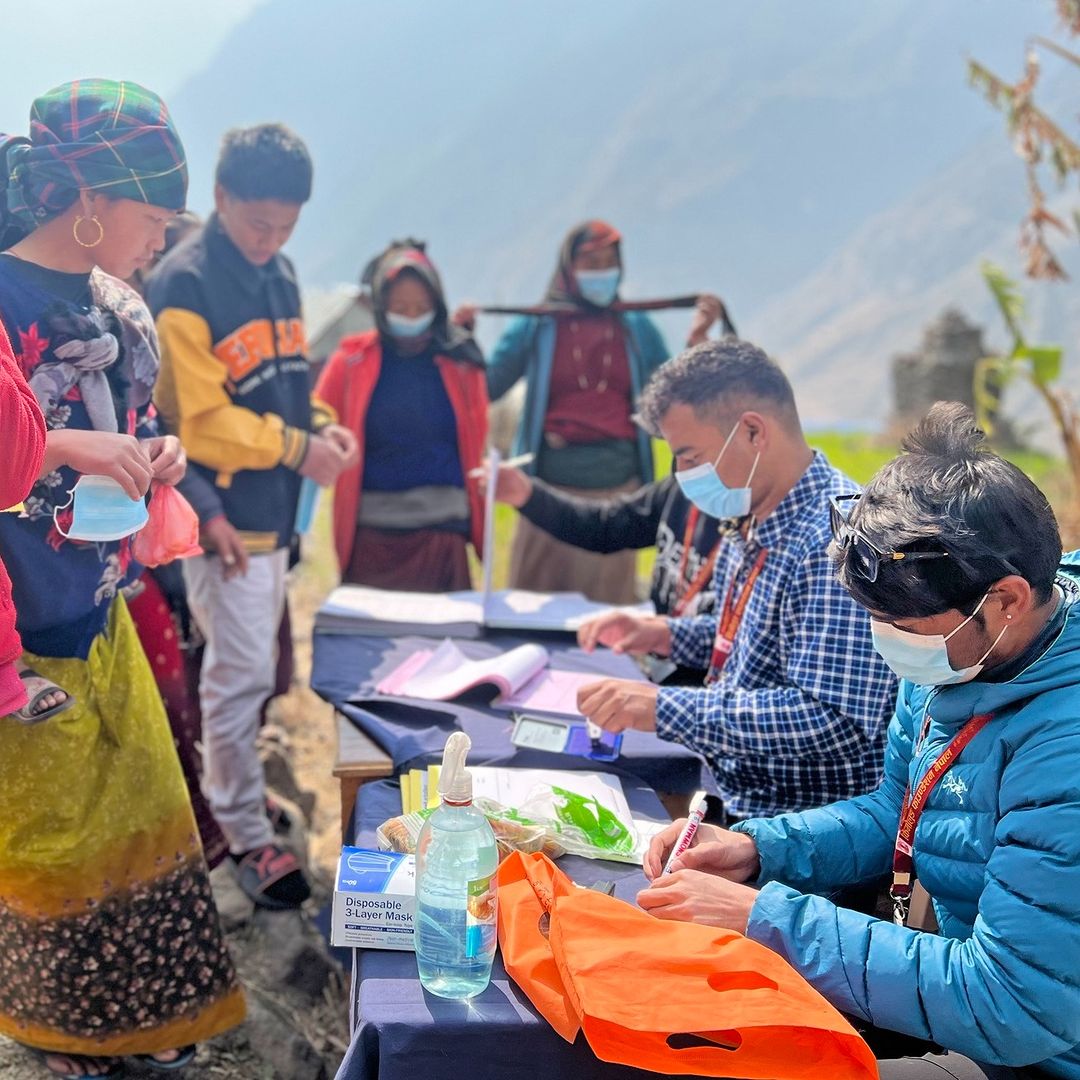In February 2023, Elevate Nepal hosted a free medical camp in the remote village of Philim, Nepal. The camp provided healthcare services to almost 1,400 patients —- a success made possible through the collaboration and diligent efforts of our camp partners, Kyimolung Foundation Nepal and Humanitarian Efforts Reaching Out (HERO).
The prevalence of disease is significantly higher in Nepal than in other South Asian countries, especially in rural areas. The majority of the population, particularly those living in rural poverty, are at risk of infection and mortality by communicable diseases, malnutrition and other health-related events. Limited access, high costs, low availability, lack of education, and conflicting traditional beliefs all exacerbate these health care issues.
With public health as a core focus of our work in Nepal, we teamed up with our friends at Kyimolung Foundation and HERO to collaborate on plans for the medical camp. Each of our organizations share the same passion-driven mission of bringing health care services to Nepal’s most underserved communities. Together, each of our teams brought forth a unique set of resources and skills to help make the camp a reality.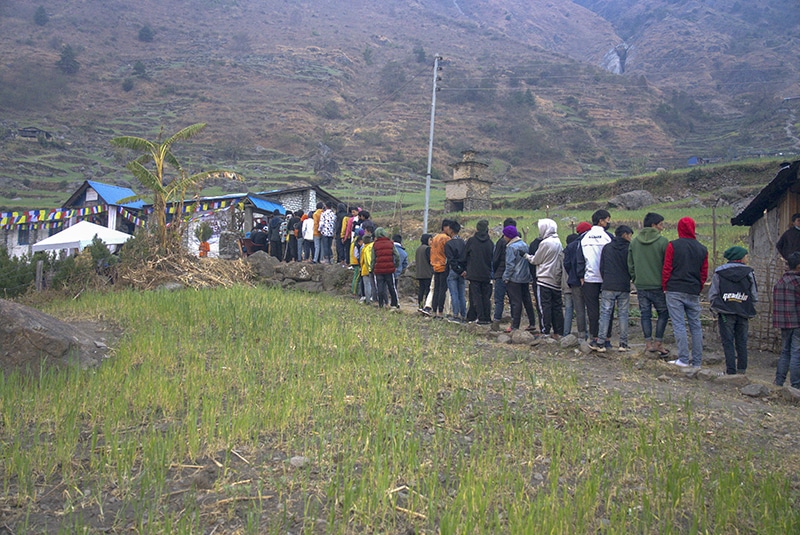
Services Offered
Over the course of the four-day camp, more than 40 doctors, nurses, volunteers and other healthcare professionals provided treatment to local residents through approximately 1,800 cross consultations and examinations. The camp team included eight HERO doctors and nurses, five Nepali doctors, eight Nepali nurses, eight translators, and all staff members from Elevate Nepal and Kyimolung Foundation.
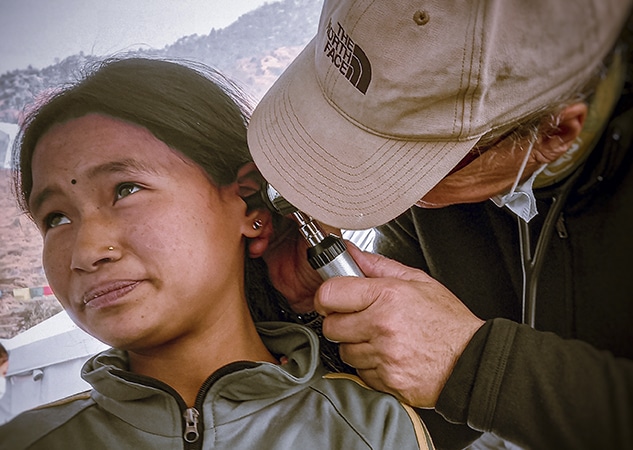
Our organizations worked on the ground and alongside the local government to deliver a variety of services to local residents. These services included:
- General health check-ups
- Ear, nose and throat exams
- Gynecology
- Diagnostic lab tests
- Acupuncture
- Pharmacy
- Education on topics such as nutrition, hygiene and family planning
The village of Philim is centrally located in Northern Gorkha, a district in Nepal’s Gandaki Province. While remote, we intentionally chose this centrally located region to allow its many neighboring communities access to our health services. We worked closely with the local government to deliver care to hundreds of patients daily. Some Nepali residents walked for two days to reach the health camp, highlighting the tremendous and dire need for these services.
We saw a significant number of patients suffering from chronic diseases such as gastritis and hypertension, and the medical team provided them with the necessary medicines and education on how to manage their conditions. The team also organized and provided fluoride treatment and hygiene awareness instruction to all the children from Shree Buddha Secondary School, the only secondary school in the region.
Global Collaboration
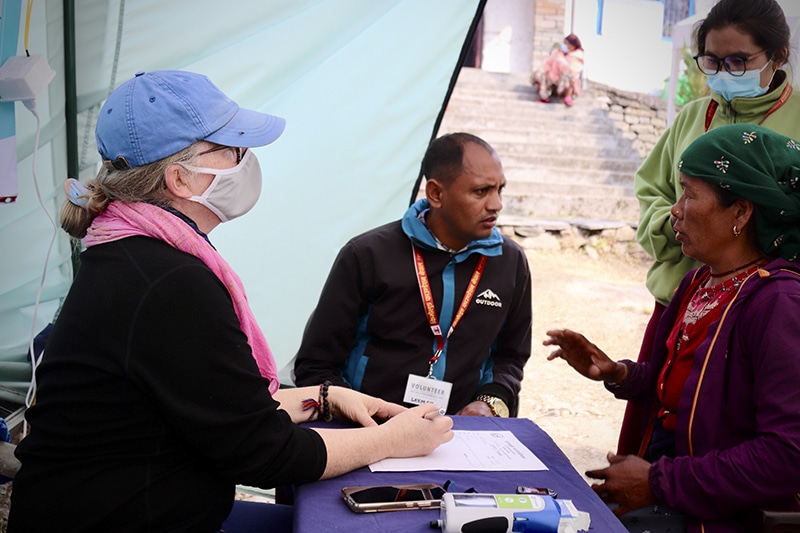
Our relationships with both Kyimolung Foundation and HERO began in 2017 and have only strengthened since then. Our founder, Dan Maurer, first met Nepal native and Kyimolung Foundation founder, Wangchuk Rapten Lama, through a mutual contact. Wangchuk and his team have a deep passion for providing health care to Nepal’s most remote high-mountain villages. That same year, Maurer met Arizona, U.S.-based HERO founder, Dr. Julie Williams. HERO’s team of volunteer American doctors have spent 14 years providing free healthcare in developing nations and were eager to expand their efforts into Nepal.
Through diligent efforts and significant logistical planning, our three organizations originally scheduled this medical camp for March 2020. Unfortunately, the Covid-19 pandemic forced us to postpone the camp and further delay access to these communities in need. While three years felt like a long time to wait, we were thrilled to maintain our close relationships with our nonprofit partners throughout the pandemic, ultimately allowing us to reschedule the camp for February 2023.
To successfully implement and complete projects in Nepal, it’s vital that we build strong partnerships with both community organizations, local residents and the federal government. Each project we’ve completed has required significant planning, flexibility, time, persistent effort, and access to a variety of local resources. We always aim to take action at a deeply local level, and this can only be accomplished through authentic relationships based in transparency and trust. These relationships will always be a priority and a passion for us.
“I want to express my heartfelt gratitude to the international community that came together to make this incredible camp happen,” said Maurer. “To all the doctors from Flagstaff and Sedona, Arizona, thank you for giving your time, expertise and generosity to the people of Nepal.”
We plan to host a follow-up camp in 2024 with a heavy focus on public health education and further training of local health care workers. We will continue making a positive impact on the health and well-being of underprivileged communities in Nepal.

